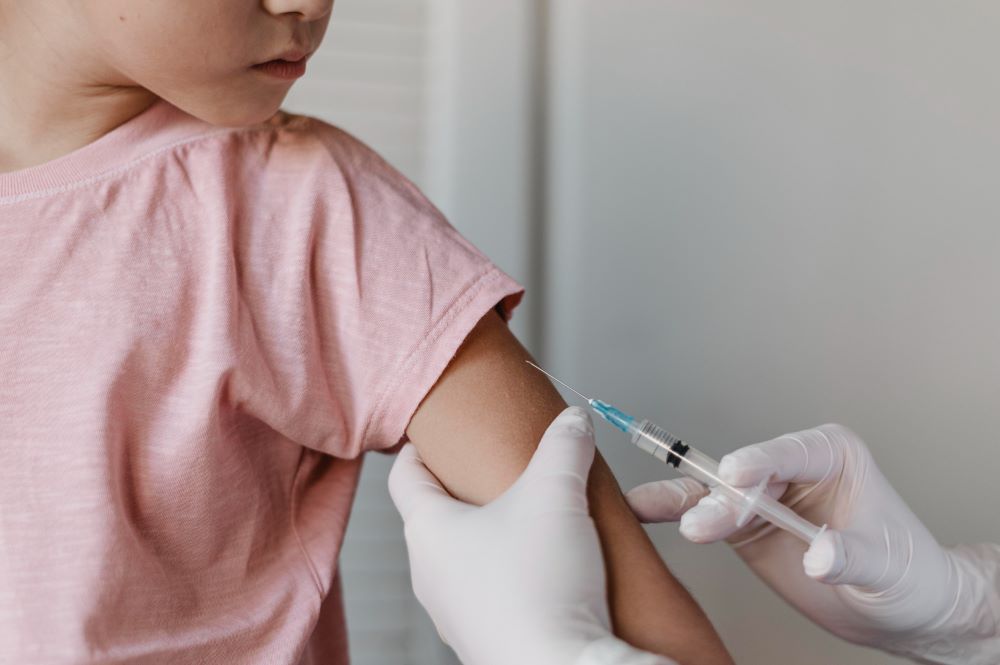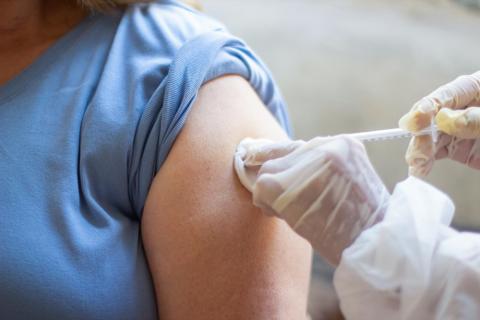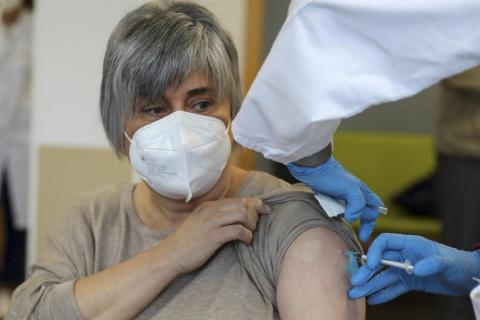Reactions: Study says children born in October are less likely to get the flu
Children born in October are more likely to be vaccinated against flu during that month and less likely to be diagnosed with the disease than those born in other months, according to a study published in BMJ. The research involved more than 800,000 US children aged two to five years who were vaccinated against the flu between 1 August and 31 January in the period from 2011 to 2018. The results suggest that the month of birth is related to both the timing of flu vaccination and the likelihood of flu diagnosis, and that October is the best month for flu vaccination.

Paula López Monteagudo - gripe octubre EN
Paula López Monteagudo
Postdoctoral Research Fellow in the Department of Microbiology at the Icahn School of Medicine at Mount Sinai in New York (USA)
Influenza vaccination is particularly important in young children due to the high risk of severe infections requiring hospital admission. Vaccination is recommended during the months of September to October to try to achieve adequate immunisation for the peak of influenza infections.
In this paper, the authors attempt to shed light on the best time of year for vaccination in order to achieve better vaccination efficacy.
The authors reject the idea of measuring vaccine efficacy through assays such as the detection and quantification of neutralising antibodies, and therefore present an approach based on the quantification of the number of hospital admissions and the severity of symptoms developed by vaccinated children included in the study.
They selected more than 800,000 children aged two to five years in the United States, born between August and December, who received the flu vaccine during their annual visit to the paediatrician between 2011 and 2018.
At these ages, the annual paediatric check-up usually coincides with the month of the child's birth, so the authors were able to observe that children born in October tend to receive their annual flu vaccination later than children born in August and earlier than those born in December. In addition, children born in October were more likely to be vaccinated during October and less likely than other children in the study to be diagnosed with influenza during that season.
This is a semi-experimental study, but it supports the current recommendation that children should be vaccinated in October, preceding the flu season.
Estanislao Nistal - gripe octubre EN
Estanislao Nistal
Professor of Microbiology at the Faculty of Pharmacy
In the study presented, the efficacy of influenza vaccination in children aged two to five years is analysed. It shows that children born in October tend to be vaccinated against influenza according to paediatric visit patterns, possibly coinciding with the administration of other vaccines. The study shows data suggesting that these children have better protection against influenza than those vaccinated in earlier or later months. The researchers conclude that optimal influenza vaccination should follow a seasonal recommendation, aligned with the influenza season, and not be determined by regular visits for other schedule vaccines that are fixed to the months after birth.
The different vaccines in the vaccination schedule stimulate the humoral immune response, increasing antibody production and protection against the specific pathogens of each vaccine. With the exception of the first few days after vaccination, the magnitude of this immune response reaches higher levels the less time has passed since vaccination. Influenza vaccination in adults is based on the seasonality of influenza viruses in humans. For optimal protection, the influenza vaccination campaign in the northern hemisphere starts in some countries at the end of September and in others during October, before the incidence increases. Therefore, vaccinating against influenza in October aims to maximise the amount of antibodies during the following months, although this protection gradually decreases over time. Epidemic waves can vary from season to season, but may generally start in October or be delayed by a few weeks. Peak incidence usually occurs in December and January.
What is remarkable about this study, based on US data, is that it suggests that optimal vaccination to improve protection against influenza (and possibly other respiratory viruses with similar epidemiology) should be guided by the epidemic season, rather than based on other parameters associated with the vaccination schedule. Some bacteria that cause bacterial pneumonias, such as pneumococcus, also tend to follow a seasonal pattern that coincides with that of influenza. It is important to remember that influenza vaccination also reduces complications associated with co-infections caused by these bacteria.
Christopher M Worsham et al.
- Research article
- Peer reviewed
- Observational study
- People



